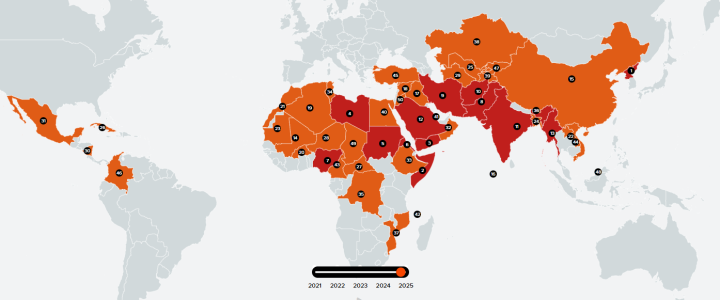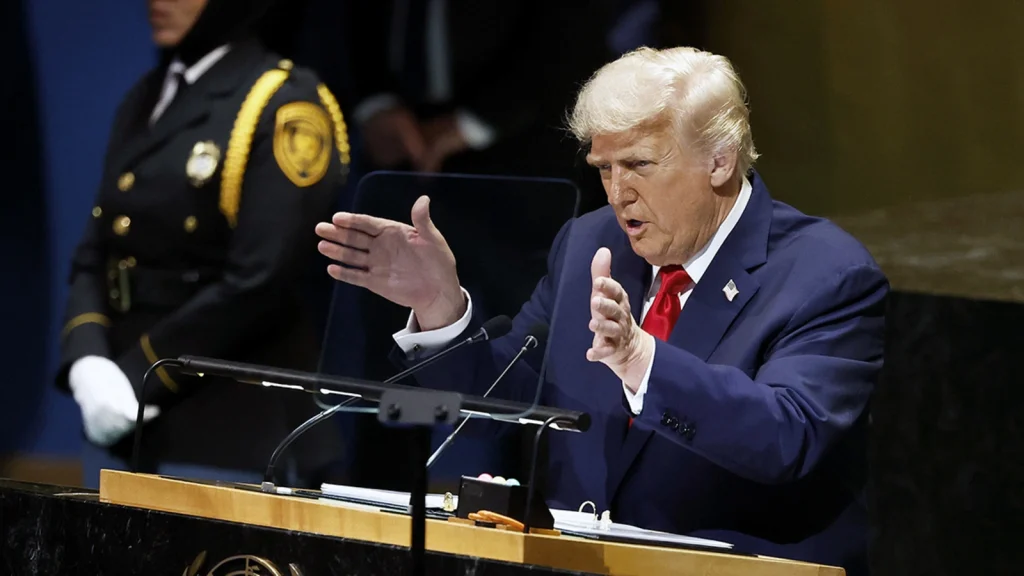The BBC has been accused of selectively editing a Panorama documentary to frame a speech by President Trump to make it look like he called for the January 6th riot at the US Capitol building.
The source is a former BBC adviser who raised the issue in a memo that has been seen by the Telegraph, relates to a Panorama documentary called “Trump: A Second Chance?” which aired a week before the 2024 US elections.
In the documentary, it appears that Trump called for his crowd to “walk down to the Capitol, and I’ll be there with you, and we fight, fight like hell”. In the un-doctored footage, Trump instead says that “we’re going to walk down to the Capitol and we’re going to cheer on our brave Senators and Congressmen and women”.
This is a blatant misrepresentation of Trump’s message, with the clip being spliced from two separate parts of his speech, 54 minutes apart. The documentary then goes on to imply that following this speech, the crowd, including the group known as the “Proud Boys” (which has been designated a terrorist organisation in Canada) then marched on the Capitol. The footage used however, contradicts this as it was taken an hour before Trump addressed the crowd.
The BBC is a state funded but supposedly impartial global news service, with Panorama being one of the world’s longest running news programmes, having been broadcast since 1953. It has, historically, aired some of the most influential documentaries in UK media, including the infamous interview between Martin Bashir and Diana, Princess of Wales in 1995, and the more recent investigation into antisemitism in the Labour Party.
January 6th 2021, Trump supporters march on the US Capitol building
Targeted Media
This isn’t the first time that Trump has been embroiled in a media scandal around the selective editing of interviews. In 2024, Trump was interviewed as part of the CBS programme “60 minutes”, allegedly spending 90 minutes with the journalist, but only 28 minutes of the interview were broadcast. While a longer version was released online, the interview was never published in full.
A year earlier, Trump sued CBS regarding a selectively edited interview it hosted with then Presidential candidate Kamala Harris, claiming that they had edited it in a manner to help her chances of winning the election.
This isn’t even the first time the BBC has been accused of selectively editing its programmes to suit a narrative other than fact. Accusations have been made against the BBC before, time regarding an episode of Newsnight where it only aired part of an interview with an individual who took part in the London Riots in 2011, and they were called out by a member of the studio audience.
Former Transport Secretary Lousie Haigh was forced to step down from her role in 2024 due to a resurgence in reporting, where her guilty plea to a decade-old fraud case brought her capability into question. By just reading the headlines, it was made out that Haigh was a hardened criminal running a phone theft empire, whereas in reality she plead guilty to a minor issue regarding a single phone, and received the minimum sentence possible.
Chasing Headlines
The revelation of misconduct in the BBC documentary on Trump is just another example of how the legacy media has fallen from its once illustrious position. In a bid to remain relevant, they have had to resort to oft vilified tactics such as sensational headlines, willful misrepresentation, and motivated editing in order to drive a narrative, rather than provide an unbiased flow of information.
We are not the only ones who are concerned by this change. The chair of the Culture, Media and Sport Committee, Dame Caroline Dinenage, has written to the Chairman of the BBC to demand an explanation.
It is evident from a historic look at the work done by BBC’s Panorama programme, that there is an institutional issue with opinion driven reporting in the BBC. They have moved from a trusted, unbiased news source, to just another partisan media group who are more concerned with view-count than they are with reporting the truth to the people who rely on them.



